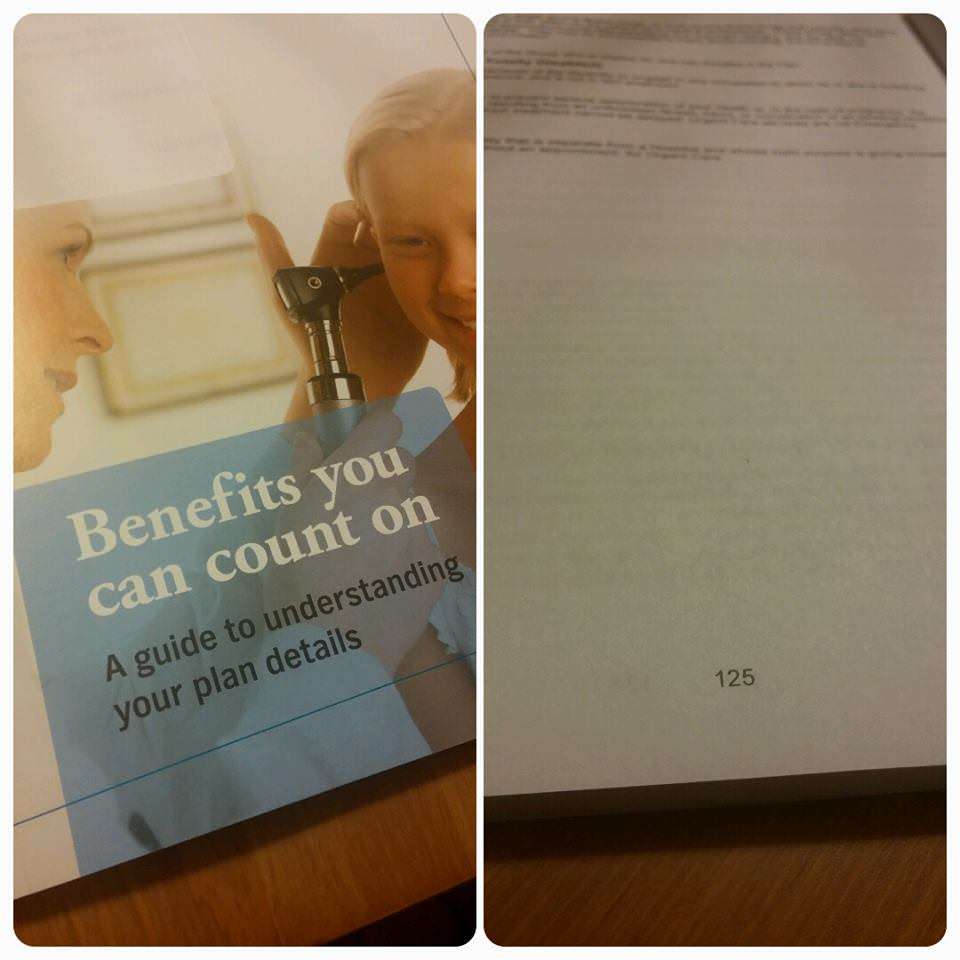I Like My Insurance Plan and I Can Keep It—for About $1,740 More Per Year
Thanks, Obamacare!


Last week I received nasty but not-entirely-unanticipated news: my insurance carrier, Anthem Blue Cross and Blue Shield, is amending my current plan effective January 1, 2015. Come the New Year, I can keep my current plan—a low-premium, high-deductible setup meant to cover major medical expenses and not much else—except it won't actually be my "current" plan. My premium will be almost quadrupling, from $55 per month to just over $200 per month.
There are a few other options available to me. I could enroll in my employer's coverage, but that, too, would cost me a little over $200 per month. I could seek insurance through one of the Obamacare exchanges, on which I would qualify for a tax subsidy for my plan, but—so far as I can tell in the dense, unworkable digital jungle of the Affordable Care Act's (ACA) marketplaces—the cheapest plan I could find would jack my deductible up by an enormous $1,350.
This is the essence of Obamacare: delivering inferior products at higher prices. And while it's been somewhat satisfying to watch the ACA's disastrous first year, at heart this is a deeply distressing and worrisome sign of things to come. This is your money, your family's health, and your liberty—all sacrificed so that a bunch of inept bureaucrats could score points wheeling out "healthcare reform" and help you buy things you simply don't want to buy.
On its face this may seem like a standard, garden-variety failure of progressive statism. But the Obamacare mess isn't simply a problem of the left; the right is complicit, too.
The star reform effort that Republicans put forward in 2012 proposed a healthcare plan that was, at its core, functionally identical to Obamacare (and lest we forget, as governor of Massachusetts, Mitt Romney implemented what ended up being the blueprint for Obamacare). Things are looking no better in 2014, as even Virginia's supposedly super-conservative Senate candidate Ed Gillepsie proposes a healthcare reform plan that's a mess of tax credits, pre-existing condition provisions, and "state-run high risk pools." Small-government touting politicians seem to have accepted the left's central premise about healthcare reform: Whatever shape it takes, the state must be in control.
Both conservatives and liberals are avoiding useful and substantial reform efforts in favor of washed-out, middle-of-the-road policies that make every aspect of the healthcare system genuinely worse. But for healthcare reform to have any measurable effect, it needs to be driven by a concrete set of political actions that dispense with the absurdly complicated and overlarge technocratic bureaucracy that has sprung up around Obamacare.
The right, for one, needs to dispense with any notion of moderation when it comes to cleaning up America's insurance disaster and offer a serious set of proposals to strip away the deleterious effects of government meddling in the healthcare market. As Virginia Libertarian candidate Robert Sarvis points out, "Real healthcare reform begins with deregulation." If you're a small-government politician and you're not supportive of aggressively stripping away the useless, costly, and counterproductive framework of modern American healthcare, you probably shouldn't be listened to.
And the left? It should get away from the messy and embarrassing disaster of Obamacare and instead advocate for what it truly desires: a government-administered, single-payer healthcare system. Indeed, many politicians, including Barack Obama himself, have mentioned that single-payer is their preferred healthcare scheme. And it's worth pointing out that single-payer system would at least be less horrendously complicated than the ACA.
As Peter Suderman recently pointed out, Obamacare's cheapest "bronze" plans are rising in price next year, anywhere from 16 percent to 64 percent; meanwhile, the price of its middle-of-the-road "silver" plans will decrease on average by one percent—though in some places the price will rise. Four years after it passed, nearly three-quarters of Americans are still terribly confused by this law. As bad as government-run, single-payer healthcare may be, it would at least be simpler and more straightforward than this debacle.
We need clear and decisive options, in other words—not this half-assed, heavy-handed, piecemeal kind of thing. If you want the genuine affordability, the abundant choices, and the freedom offered by a free-market solution, then fight for it. Alternately, if you want the expensive, bloated, and low-quality—yet dependable and widespread—system of universal healthcare, then advocate for that. But spare us from Obamacare, or anything like it. It is a worthless disaster of a law, and it is only getting worse.


Show Comments (134)